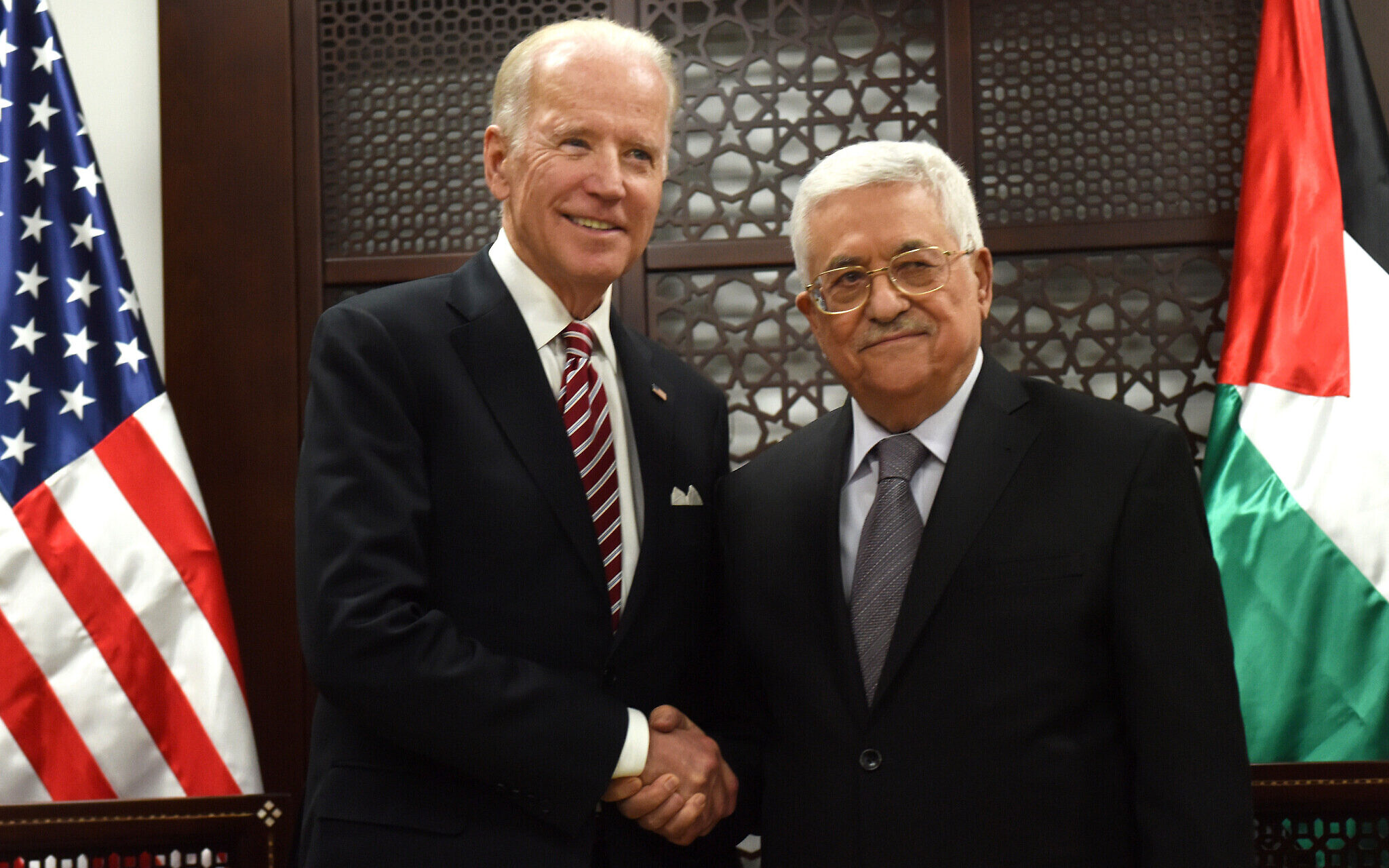
While Israel has stood strong against the reopening of a US diplomatic mission to the Palestinian Authority, the State Department has sneaked in a new position that promotes US-PA relations – and could undermine Israeli sovereignty in its own capital.
Hady Amr, leaving his post as deputy assistant secretary of state for Israeli-Palestinian affairs, will become the new special representative for Palestinian affairs – the first time the US has created such a position.
Abu Mazen (now in his 18th year as PA president, though he was elected for a four-year term) originally objected to the new position. He demanded that the US reopen its consulate in Jerusalem, which would essentially serve as an embassy to the PA.
However, “as the President reiterated in Israel and the West Bank,” a State Department official said, “we remain committed to re-opening our Consulate General in Jerusalem and to the vision of a two-state solution.”
The correlation, then, that this position has with Jerusalem raises very critical questions: “Does the new post include purview over eastern Jerusalem? Are Arab residents of Israel in eastern Jerusalem supposed to engage with his office, or with the US Embassy to Israel?”
We referred precisely these questions to the US Office of Palestinian Affairs, which then referred us to its press office in Washington. No answer has yet been forthcoming, which is not surprising – because the issues are potentially explosive. For if in fact Arab citizens of Israel need not turn to the US Embassy in Israel but rather to a “stand-in” for a PA consulate/embassy, this would be nothing less than what Israel has called all along the undermining of Israeli sovereignty in its own capital.
Can it even be imagined that France, let’s say, would open an office in Washington for Native Indian affairs? This would be as if saying, “The Indians deserve their own identity, independent of the United States.” The only difference is that the Indians are no longer fighting for their independence and land, while the Arabs of the Palestinian Authority most definitely are.
Over a year ago, when the issue of reopening the American consulate for the PA first arose, former Jerusalem Mayor Nir Barkat said that it “means recognizing Jerusalem as the capital of Palestine … a red line that cannot be crossed.” Jerusalem Deputy Mayor Aryeh King called the initiative “a spiteful move that seeks to undermine Israel’s absolute sovereignty over Jerusalem” – sovereignty that continues to be under fire from those who wish to see Jerusalem become the capital of a new Arab state.
Furthermore, the very initiative of establishing a high-level position to upgrade the PA’s US relations and standing in Washington encourages it not to make concessions and thus perpetuates the state of non-peace – or worse.
KeepJerusalem calls upon the Israeli government to ensure that Hady Amr’s job remains only to encourage the PA to “undertake serious reforms” – one of the challenges that former U.S. Ambassador to Israel Martin Indyk reportedly said Amr would face in his new post.
Meanwhile, the Jerusalem Municipality published the zoning description for the future US Embassy to Israel earlier this month – and PA figures have begun to accuse Israel of stealing the land on which it is to be built.
PA prime minister Mohammad Shtayyeh demands that the US cancel its plans to build the new embassy complex. He told his cabinet ministers that the designated land – smack in the middle of western Jerusalem – was “illegally confiscated” by Israeli authorities in 1950.
The facts are, however, that the confiscation was not only legal, but in keeping with a just, moral, and duly-passed Knesset law: the 1950 Absentee Property Law, which transferred the property of absentee Arab land-owners into the possession of the State of Israel.
Who were these land-owners? On the whole, they were Arabs who had run away from the battlefront before and during the 1948 War of Independence, with encouragement and promises from the attacking Arab countries that they would soon be able to return in victory over the Jewish entity. *They were thus accomplices in the Arab war effort to destroy Israel.*
On June 8, 1951, for instance, the Secretary-General of the Arab League wrote that during the war, the League “assured the Arab peoples that [victory over the Jews] would be as simple as a military promenade…” This underscored that which a Jordanian daily wrote on February 19, 1949: “The Arab states… encouraged the Palestinian Arabs to leave their homes temporarily in order to be out of the way of the Arab invasion armies.”
Thus, the homes and lands were abandoned specifically in order to facilitate Israel’s destruction. Just like it is well understood that Israel need not accept Arab Palestinian “refugees” into its population, the Absentee Property Law has the same justification: Israel need not allow people to return to their homes so that they might finish off, from within, that which they sought in 1948, namely, the destruction of Israel.
The new US Embassy is to be built just off Derech Hebron, in an area known by its British Mandate-era name as “Camp Allenby.”
Despite what are expected to be increasing claims of illegality by left-wing organizations, the law in question has even been upheld by Israel’s Supreme Court, which takes international law into significant account.
These two dangerous developments – the upgrade of Washington’s relations with the PA, and the outrageous claims against Israeli law – present potentially great challenges to Israeli sovereignty in its united and historic capital. If and when we overcome them, the national rewards will be historic.

